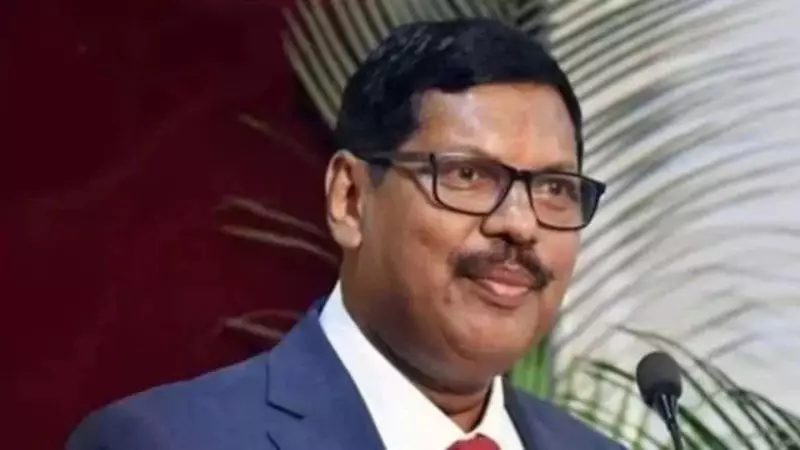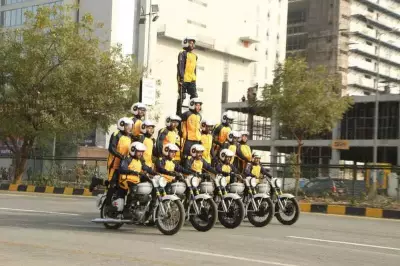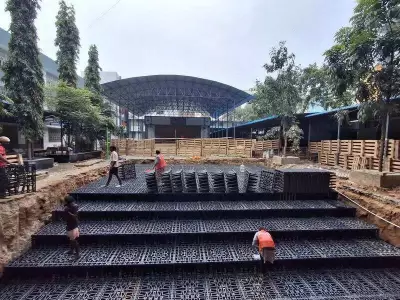
On his final day in office, Chief Justice of India B R Gavai delivered a poignant farewell address, recalling the significant professional challenges he faced, including intense criticism from his own community for his landmark judgment on applying the creamy layer principle to Scheduled Castes.
A Controversial Verdict and Personal Backlash
Speaking at the farewell organized by the Supreme Court Bar Association on Friday, Justice Gavai revealed he faced severe criticism from his own community for his role in the August 1, 2024 Supreme Court judgment. In a 6:1 ruling, a bench headed by then CJI D Y Chandrachud had determined that Scheduled Castes could be sub-classified for reservation purposes, with the creamy layer among SCs being excluded from benefits.
"I have been very severely criticised in my community with regard to that judgment," CJI Gavai acknowledged. "Fortunately three of my colleagues supported my view."
The outgoing Chief Justice provided a compelling rationale for his position, asking whether "the son of a chief secretary studying in the best of colleges in Delhi, say St Stephen's, can be made to compete with the son of an agricultural labourer studying in a gram panchayat or zilla parishad school?"
Politics Versus Logic in Reservation Discourse
Justice Gavai didn't shy away from calling out the political dimensions of the reservation debate, noting that "at times politics plays more important role than logic."
He shared an encouraging anecdote about one of his own law clerks, the son of a senior Maharashtra officer from a Scheduled Caste background, who after the judgment realized he shouldn't claim SC benefits given his privileged educational opportunities. "That one boy understood what politicians refuse to understand for reasons best known to them," the CJI remarked.
CJI Gavai, who retires on November 23, emphasized that Article 14's equality principle doesn't mean equal treatment for all, echoing Dr. Ambedkar's view that special treatment for disadvantaged groups is essential to reduce inequality.
Upholding Judicial Independence and Liberty
The outgoing Chief Justice also reflected on other significant aspects of his tenure, including his recent verdict quashing key provisions of the 2021 Tribunals Reforms law. He firmly stated that freedom of tribunals cannot be compromised, noting that "independence of the judiciary is one of the basic features of the Constitution."
He addressed an awkward situation with Attorney General R Venkataramni during these proceedings, clarifying that "there was nothing personal" in his firm stance when the government sought adjournments.
Liberty remained another cornerstone of his judicial philosophy. He recalled the notable instance when a bench comprising him and Justices A S Bopanna and Dipankar Datta sat after 9 pm on July 1, 2023 to grant interim protection to activist Teesta Setalvad, staying a Gujarat High Court order that had rejected her bail plea in a case linked to the 2002 Gujarat riots.
"In such matters if the Supreme Court does not interfere, then can it have a right to be called custodian of the liberty of citizens?" he questioned.
From Humble Beginnings to Supreme Court
Reflecting on his remarkable journey, CJI Gavai, only the second Dalit Chief Justice of India after K G Balakrishnan, credited the Constitution and his parents' values for his success. "I am very satisfied with the journey which started 40 years ago," he said, expressing particular pride in judgments upholding rule of law, including those against what he termed "bulldozer justice or demolition justice."
He firmly stated that right to shelter is a fundamental right and that families cannot be evicted merely because a member is suspected or convicted of crimes.
Colleagues and Bar Association Praise
CJI-designate Justice Surya Kant, who will succeed him on November 24, offered effusive praise during farewell proceedings, describing Justice Gavai as "more than a colleague he was my brother and a confidant, and a man of immense integrity."
SCBA president Vikas Singh highlighted how CJI Gavai restored the dignity of the bar and immediately reinstated mentioning and letter circulation upon becoming Chief Justice. Singh notably pointed out that both CJI Gavai and Justice Surya Kant being first-generation lawyers sends an encouraging message to budding lawyers without family connections in the legal profession.
"If there had been nepotism, then this could never have happened," Singh observed, addressing concerns about elevation processes in the judiciary.





